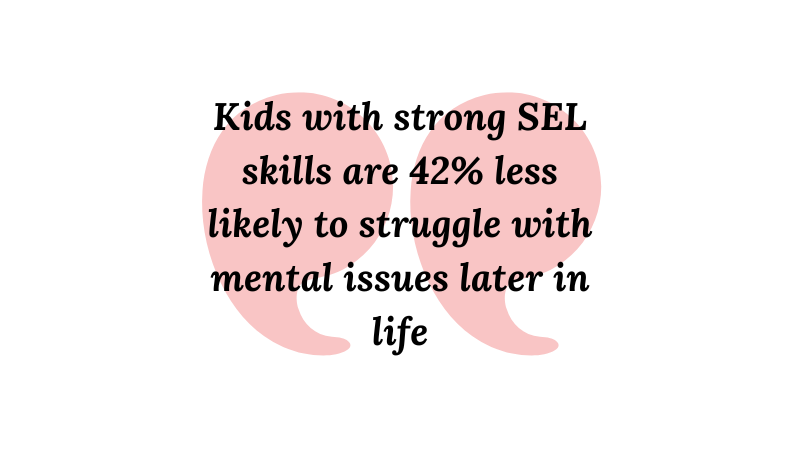Why Social-Emotional Learning Matters
As parents, we all want to give our children the best foundation for life. We think about their education, their friendships, and their future success. But there’s something just as important—if not more—that often gets overlooked: social-emotional learning (SEL).
At its core, SEL is about helping kids understand and manage their emotions, build positive relationships, and make responsible decisions. And research shows that when we focus on these skills, children thrive—not just emotionally, but academically and socially, too.
But what does the science actually say about SEL? And why should it matter to us as parents? Let’s dive in.
The Research-Backed Benefits of Social-Emotional Learning
- Better Academic Performance
Studies have shown that children who engage in SEL programs perform 11% better on standardized tests (Durlak et al., 2011). Why? Because emotional regulation, focus, and resilience all play a role in learning. - Stronger Emotional Resilience
SEL teaches kids how to navigate challenges and setbacks. A study published in Child Development found that students who participated in SEL programs had lower levels of stress and anxiety (Taylor et al., 2017). - Healthier Social Relationships
Children with strong social-emotional skills are more likely to build lasting friendships and resolve conflicts peacefully. Research from The Journal of Applied Developmental Psychology found that SEL fosters higher empathy and better communication skills (Domitrovich et al., 2017). - Lifelong Well-Being
The benefits of SEL extend far beyond childhood. A study from Penn State and Duke University found that children with strong social skills in kindergarten were more likely to be employed, earn higher wages, and have better mental health in adulthood (Jones et al., 2015).

SEL in the Home: What This Means for Parents
So what does all of this research mean for us as parents?
It means that every time we:
✅ Help our child name their emotions instead of shutting them down
✅ Teach them how to handle frustration without lashing out
✅ Model kindness and empathy in our daily interactions
✅ Encourage problem-solving instead of fixing everything for them…
…we are building their emotional intelligence and resilience. And that’s just as important as teaching them how to read or do math.
But I know firsthand that teaching emotional awareness isn’t always easy. As a mom, I’ve had to unlearn so much about my own emotional responses to be able to model healthier ones for my daughter. I grew up believing that pushing through, staying strong, and avoiding “big feelings” was the way to go. But now, I see that true strength is in understanding our emotions, not ignoring them.
That’s why I created Stay-at-Home Learning—to give parents the confidence and tools to nurture emotional intelligence in their children. Because when we slow down and focus on connection, we’re not just raising smart kids, we’re raising emotionally strong, kind, and compassionate humans.
Let’s Keep the Conversation Going
I’d love to hear from you! How do you nurture social-emotional learning in your home? Have you noticed a shift in your child when you focus on emotions and connection? Let’s chat in the comments!
📩 Stay Connected! Want more insights on parenting, emotional intelligence, and mindful learning? Sign up for my email list and receive exclusive content, free resources, and heartfelt reflections straight to your inbox!



